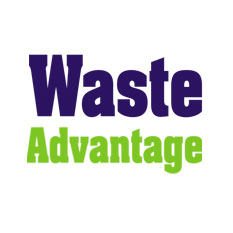Why Closed Landfills Are Golden Assets Waiting for Exploitation
Waste & Recycling | 2025-05-05 08:16:14
First, a closed landfill does not mean unusable land, but rather means land that requires a specific redevelopment strategy.

SEATTLE (Waste Advantage): Let’s step into the shoes of a smart operator for a second. You are sitting on a closed landfill—it is capped, maybe monitored, but essentially collecting dust (and burning money on post-closure care). If that is the scenario, you are sitting on dead capital. However, imagine flipping that same piece of land into:
• A profitable industrial or logistics hub
• A controlled solar or energy conversion site
• A commercial leasing space that attracts local business grants
• A revenue-generating asset leased back to the very same municipality that wanted it gone
Sounds crazy? Not if you know what strings to pull.
Strategy #1: Redevelop the Site with Military Precision
Let’s break this down like a seasoned operator—not a bureaucrat. First, a closed landfill does not mean unusable land, but rather means land that requires a specific redevelopment strategy. While this approach respects compliance and safety protocols, it should also focus on the highest potential use of that land based on zoning, infrastructure, and logistics.
You do not start by asking, “What can we do with it?” You start by asking, “What will create recurring revenue without digging?” That means projects like:
• Solar farms (but not in the “eco-hero” sense—more in the lease-the-roof-to-energy-companies-and-collect-checks kind of sense)
• Truck parking depots for high-traffic zones where industrial land is limited
• Data centers on land no one else wants, but with strategic fiber or power access
• Concrete batch plants or transfer stations that do not require subsurface excavation
The name of the game is vertical development with minimal ground disruption. It is chess, not checkers.
Strategy #2: Turn Regulatory Compliance into a Profit Center
Here is where most people freeze. You say “regulatory framework,” and they start hearing lawyers’ bills, endless permits, and agency inspections. Let me flip the script for you.
The regulatory system is not your enemy. It is your protective moat—because when you navigate it once, you have built a system that you can resell to municipalities, developers, and even other waste operators.
Post-closure care, gas collection, surface water control … these are not chores; they are services you can productize. Here is how you play it smart:
• Create a post-closure compliance service that local governments or private landfill owners can outsource to you
• Build a plug-and-play closure-to-reuse framework that you lease as a consulting package
• Turn your remediation and monitoring operations into teachable systems and licensable protocols
Once you stop treating compliance like red tape and start treating it like a franchisable system, you go from waste hauler to waste empire builder.
Strategy #3: Engage the Community, but Not for Applause
Now I know what you are thinking. “Sam, didn’t you say no kumbaya stuff?” Correct. I am not telling you to hug the neighborhood council. I am telling you to negotiate like a land shark who knows the battlefield.
Here is what most people miss: your biggest win in a landfill repurpose is not just zoning, it is also community buy-in that converts to political green lights. You do not show up with a ‘green brochure.’ You show up with:
• Job creation numbers
• Local business partner proposals
• Tax revenue projections
• Pre-negotiated deals that allow locals to lease commercial pads once the project is live
You want the community to see your project as their economic oxygen, not another waste story. That is when you stop getting resistance, and start getting invites.
Bonus Play: Landfill Gas Conversion—Still Viable?
Yes, but do not let the buzzwords fool you. Gas recovery from capped landfills is a numbers game. And while it used to be goldmine-level, these days it is more of a utility play—perfect if you are already in the space and can bolt it onto your infrastructure.
If you are not? It is a great strategic partnership opportunity. Bring in the gas guys, negotiate a share of the deal, and let them do the legwork while you control the real estate. It is not about becoming an energy baron. It is about owning the land and monetizing access.
Here is the Real Question: Are You Playing Offense or Defense?
Most waste operators react to landfill closures. They scramble to wrap up, deal with inspectors, and cut their losses. But the smart ones—the ones I call Waste Management Titans—turn closures into launchpads. They make every cap a stepping stone to a new business line. That is not just tactics; that is a shift in positioning.
Stop thinking like a service provider and start behaving like a waste real estate developer with industry DNA. Here is the kicker: very few people are doing this. The barrier to entry is knowledge, not capital.
What’s Next?
If you are running a waste management business and you have got a closed landfill—or you are eyeing one—you need to stop treating it like a liability and start treating it like a dormant cash machine. But to unlock it, you need more than theory. You need a blueprint. Let’s turn your landfill’s final chapter into your company’s next big win.
Courtesy: www.wasteadvantagemag.com
 By
By 